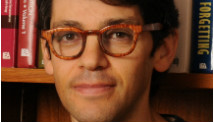SINGAPORE: Nanyang Technological University (NTU) will offer a first-of-its-kind degree programme in Public Policy & Global Affairs in Singapore.
The Bachelor of Arts (Honours) programme offers a unique interdisciplinary curriculum that combines politics and international relations, public policy and public administration.
The programme, which will enrol its pioneer class of 55 students this August, will focus on two key areas for its teaching and research - global Asia and Asian regionalism and public policy in science and technology, creating new niche areas for NTU.
NTU said the new programme will prepare students for career and leadership roles in government agencies, non-profit organisations and the private sector.
It also fills the gap of one of the disciplinary cores in social sciences to be offered by NTU, namely political science.
Presently, through its School of Humanities and Social Sciences, seven social science majors are offered by NTU: Chinese, English, Economics, History, Linguistics and Multilingual Studies, Psychology and Sociology.
Prof Kam Chan Hin, Associate Provost in charge of Undergraduate Education at NTU, said: "As a university with established strengths in science, engineering and public administration, NTU is well-placed to offer this new programme to meet the growing demand for such policy experts, especially in Asia. The course will offer students real-world learning and practice in public service, particularly on how to deal with such strategic challenges and international and public affairs as a whole.
"The course builds on the strengths of NTU's core disciplines in the social sciences and enhances the intellectual breadth of the university. Besides providing rigorous training on the finer aspects of policy-making and global affairs, it will also imbue students with the critical values of leadership, integrity, life-long learning, exemplary character and professionalism."
Throughout the four-year direct honours programme, students will be exposed to a broad variety of subjects, such as policy analysis, programme evaluation, public financial management, human resource management and non-profit management.
They will also receive professional training in political dynamics, international politics, comparative politics, comparative public administration and global affairs.
Interdisciplinary courses will be taught by professors from different disciplines drawn from across the schools at NTU.
Prof Kam said: "Upon graduation, students will be ready to pursue a broad spectrum of rewarding careers in civil service administration, public management, policy analysis, journalism and research. They can also choose to become teachers, especially in Social Studies, History and China Studies. I am pleased that several potential employers, including a few ministries, the Economic Development Board and IE Singapore, have already expressed support for the programme."
Graduates from the programme will also be qualified to teach Social Studies, History and China Studies from primary school to junior college levels, to meet a growing demand in Singapore's schools.
As the S Rajaratnam School of International Studies (RSIS) will be a major partner in teaching and research, graduates from the programme can also pursue further studies at the RSIS.
The Public Policy and Global Affairs programme will be driven by Prof He Baogang, who has established an international reputation as an authority on Chinese democratisation, non-government organisations and local governance, as well as in international relations and Asian studies.
Prof He had also served as an adviser to public and governmental organisations, including the United Nations Development Program (UNDP) and the Danish International Development Agency.
- CNA/xq
 iPhone, iPad and Mac are trademarks of Apple Inc., registered in the U.S. and other countries. App Store is a service mark of Apple Inc.
iPhone, iPad and Mac are trademarks of Apple Inc., registered in the U.S. and other countries. App Store is a service mark of Apple Inc.













